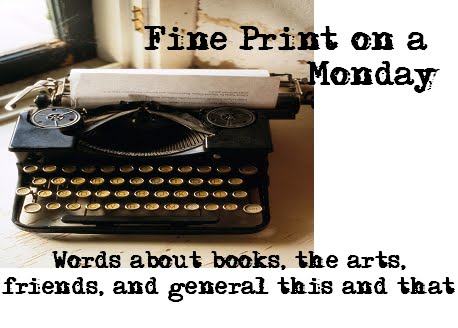This interestingly ironic note turned up in my inbox today from our friend, writer, and guest blogger, Steve.
today is a significant one for peyton place fans and readers - garrison reported this morning it is the birthday of Grace Metalious - here's the write-up
It's the birthday of novelist Grace Metalious (books by this author), born in Manchester, New Hampshire (1924). She wrote the scandalous novel Peyton Place (1956) about a small New England town that is filled with sex, rape, murder, and suicide.
Metalious was a stay-at-home mother of three children, and she wrote the novel to help her husband pay the bills. She got the idea for the book in the middle of the night and wrote it in 10 weeks. It was the first work of fiction she ever published. She based part of the book on a town secret about a woman who murdered her father, and when the book became a best-seller, the locals in her town were horrified. It was banned in libraries across the country, and the public library in her hometown didn't have a copy until the 1990s.
After her death, the book was made into a TV series that became the first ever long-running primetime soap opera, and all primetime serials since then have been based on its example.
now isn't that interesting?
No kidding that's interesting, especially if you read last week's mini-post saying that my book group is reading PPlace as our September book. Let me start by saying this wasn't the best book I have ever read, but it wasn't the worst either. Not having read other pop fiction from this era, I have no benchmark. The late 60's saw the rise of many existential writers, mostly playwrights like Pinter and (my fave) Beckett. But pop fiction - maybe Please Don't Eat the Daisies or a few titles by Victoria Holt or whichever of her multiple pseudonyms she was using a the time.
On Sunday afternoon I canned tomatoes, pickles and peppers for the fist and last time in my life. While veggies bubbled and boiled on the stove, things bubbled and boiled in Peyton Place as well. If you decide to read this book, don't let the 400+ pages scare you. Dialogue helps move the plot along nicely, and face it, we aren't talking Faulkner here. I would describe Metalious' style as simple and old-fashioned. At times her character descriptions are painfully overworked, and Metalious uses far too many similes and hyperboles for my taste. Give me a solid metaphor metaphor any day but those hover on the cusp on symbolism and may not have been her forte. At first I was annoyed by the the meandering prose of the opening sequence, but then it dawned on me - she's painting a Norman Rockwell portrait of Peyton Place. Then just at the right moment, Metalious shifts her attention to two locals sitting on bench observing and passing judgement - passing judgment mostly on women.
From there the book shifts into high gear, the clown car of social issues revving, exploding and more often than not backfiring into the lives of those living up and down Elm Street. There's incest, rapr abortion, murder, dishonestly, political corruption, womanizing, alcoholism suicide. lust, pre-marital sex, and more. Of course, with each of these come big questions, ethical questions to be considered and, in some cases, re-considered.
I understand why this book was shocking in 1957 and I must say that Metalious was near genius when it comes to planting those explosive scenes. Her sense of when and where to startle us with language or gasp-worthy dalliances is impeccable. "Have things changed?" I asked myself more than once. You know, if we all look at a simple 5 or 10 square mile section of our own towns, I bet we'd find many of the same situations that caused such a stir in Peyton Place. My hope is that we have matured to a point where we look at those situations - which frankly are none of our business - with kinder eyes.
Thanks for stopping by.

